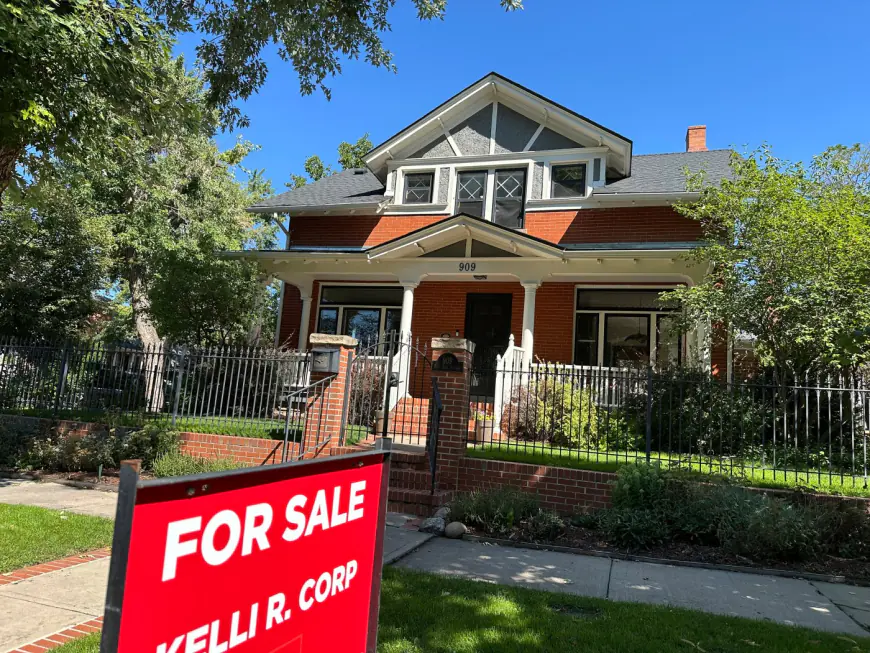If the Federal Reserve is cutting rates, why are mortgages so expensive?
“It’s a huge frustration for all the folks that were excited to jump in and buy homes, once the Feds started cutting interest rates,” said Lara Rhame, chief economist at FS Investments.

While the Federal Reserve has cut its short-term interest rate target by three-quarters of a percentage point since mid-September, 30-year fixed-rate home mortgage rates rose by almost as much during that period and have lately averaged around 6.8%, higher than they were when the Fed began cutting, according to Freddie Mac, the home-loan finance giant.
Small-business loan rates are also up: Small Business Administration-backed average interest for new real estate and capital improvement loans rose more than half a percent since September, according to data collected by CDC Small Business Finance, one of that program’s largest lenders.
To be sure, the central bank’s target rates and its much-publicized recent rate cuts don’t directly set long-term mortgage and business loan rates. It’s not unheard of for rates on multiyear loans, such as 30-year mortgages, to move modestly against the direction of the Fed’s short-term targets, analysts say.
But the recent gap, with Fed and bank rates moving in opposite directions, “is actually quite different” from the usual result after a Fed hike, said Lara Rhame, chief economist at FS Investments in South Philadelphia.
It’s “abnormal” for rates to fall when the economy is doing well, she said — a sign money market players are worried about inflation under one-party government when politicians “can spend with fewer guardrails,” likely leading to faster growth and more price inflation.
Rhame said her research on past Fed performance suggests long-term mortgage rates could stay at or above 5% into next year.
“It’s a huge frustration for all the folks that were excited to jump in and buy homes, once the Feds started cutting interest rates,” she added.
Eric Merlis, cohead of global markets for Citizens Financial Group, which runs the largest bank-branch network in the Philadelphia area, said long-term rates reflect the economy’s growth prospects.
When mortgage and business-loan rates rise despite Fed cuts, it suggests lenders are concerned inflation, economic growth, and property, stock and other asset prices will get worse.
Mortgage inquiries rose postelection
Mortgage inquiries slowed during the recent presidential campaign, as if buyers were waiting to see who won, but calls from would-be buyers have surged since Donald Trump’s election, said Michael A. Kent, veteran mortgage banker at First National Bank of Pennsylvania’s Berwyn office.
“I received more calls since Thursday than in the last three weeks,” he said in an interview last week. But there still aren’t many houses for sale, locally or nationally, compared to the demand, Kent added.
Nationally, “house-hunting activity was much slower than expected” during the presidential campaign, the national real estate brokerage Redfin reported last week.
“Buyers are returning” since Trump’s election, yet “we don’t expect rates to fall significantly anytime soon,” said Redfin economic researcher Chen Zhao.
Rhame, the FS analyst, said that even if the Trump administration wanted to increase U.S. housing construction, it would need to push local governments to speed project approvals — a challenge for national leaders.
Kent, the mortgage banker, noted that Fed rate cuts have more impact on credit cards, car loans, and other short-term borrowing than on business and mortgage loans. If mortgage rates stay high, he expects more buyers will ask for adjustable-rate loans, as if betting that rates will fall over the next few years.
Analysts say high mortgage rates reflect, in part, expectations that inflation would increase next year — for example, if the Trump administration makes good on promises to cut taxes without corresponding cuts to the major categories of U.S. government spending: medical, Social Security, military, and debt service.
Kent added that any Trump administration moves that speed the economy more than expected — for example, by expanding fossil-fuel development and cutting gasoline prices — would come as a welcome deflationary surprise and maybe lead to lower interest rates.
When might mortgage rates drop?
Standard 30-year mortgages won’t likely drop until the long-term lending benchmark U.S. Treasury bond yields fall from their current levels, said Mike Reynolds, vice president for investment strategy at Glenmede Trust Co. in Philadelphia.
At a little under 7%, average 30-year home-loan rates “aren’t so egregiously high” that they would slow the economy, he said. “We do expect, as the Fed continues to go down this path of rate cuts, interest rates are likely to trend lower. It’s just not likely to be a straight-line process.”
He’s sanguine that Trump won’t force too-rapid change to the Fed, whose chairman, Jerome Powell, was appointed by Trump in his first term. “But the COVID period of just printing more money” without raising revenues “seems to be behind us.”
Reynolds is hopeful that less deficit spending will boost economic growth, and ease pressure on interest rates, and the borrowers who pay them.
___
©2024 The Philadelphia Inquirer, LLC. Visit at inquirer.com. Distributed by Tribune Content Agency, LLC.
What's Your Reaction?









































































































